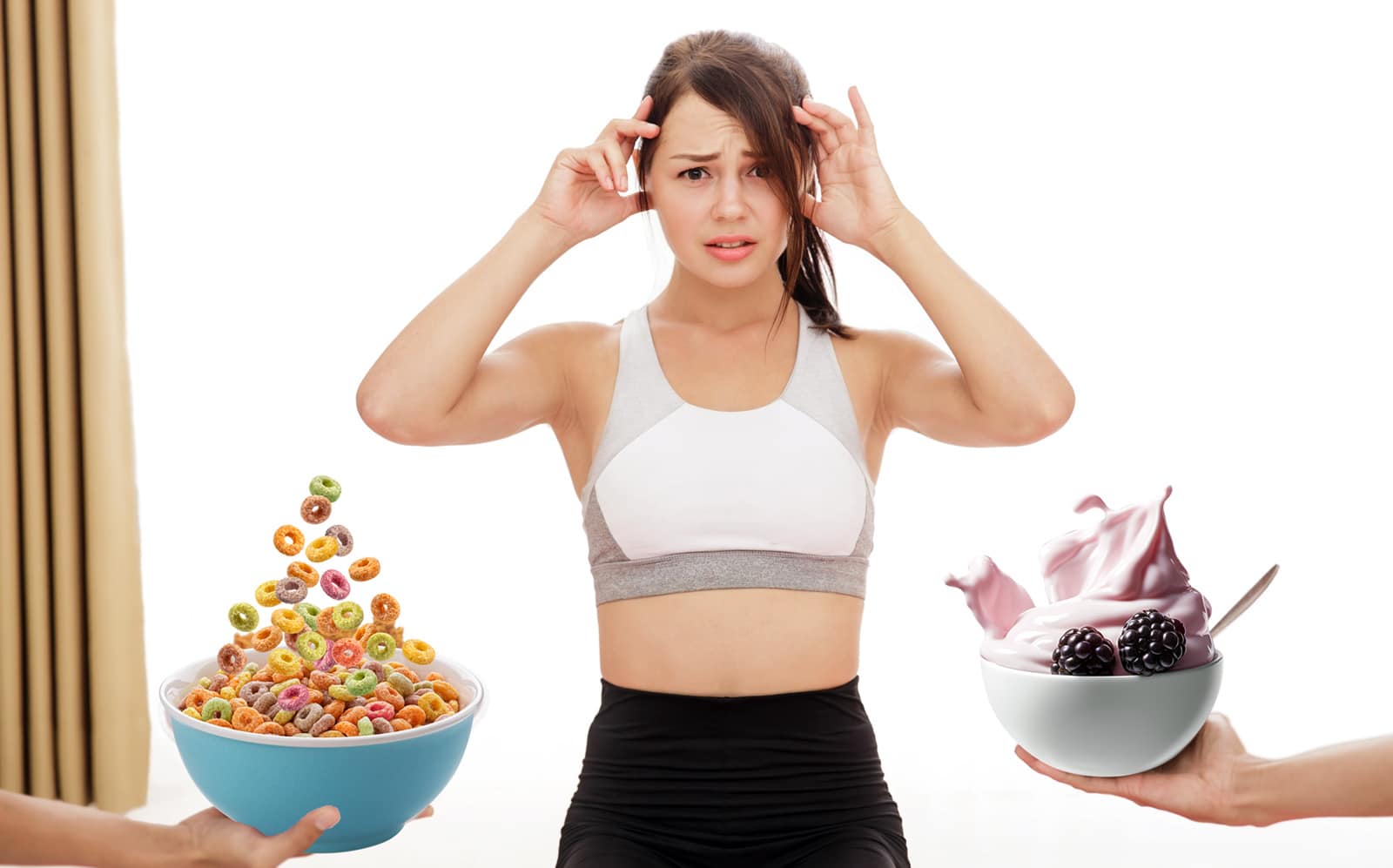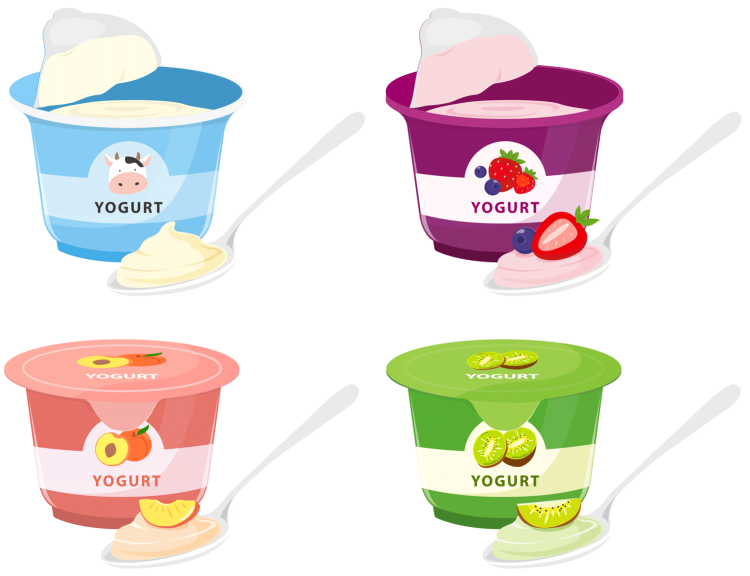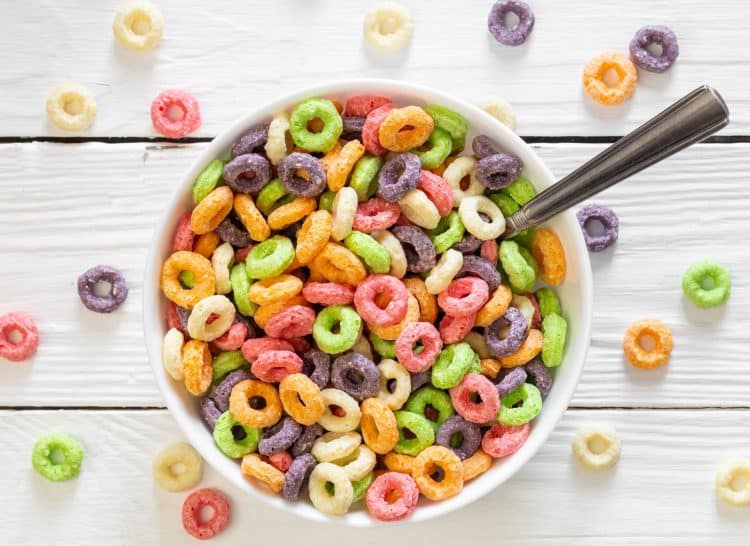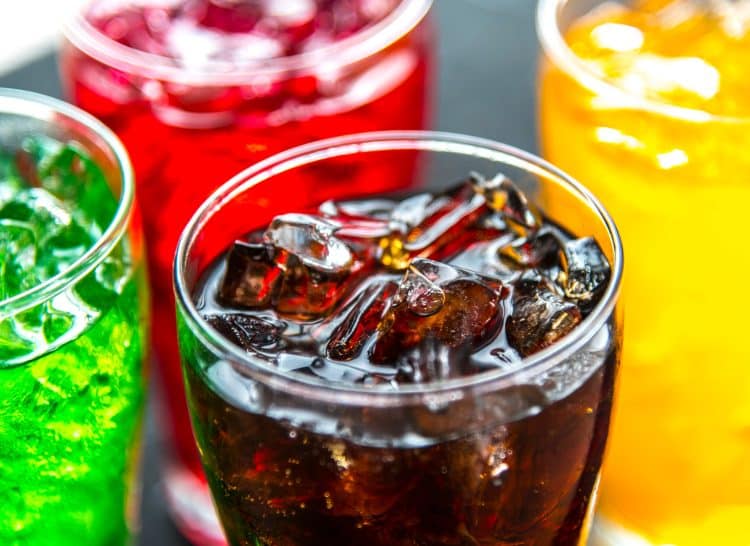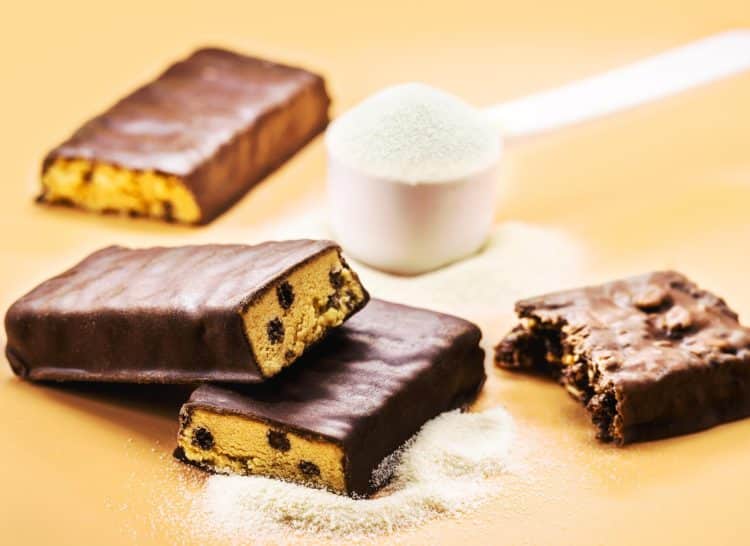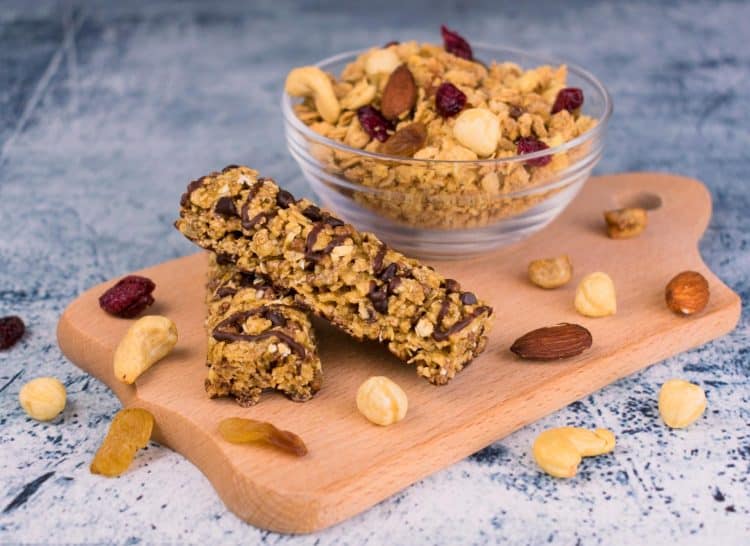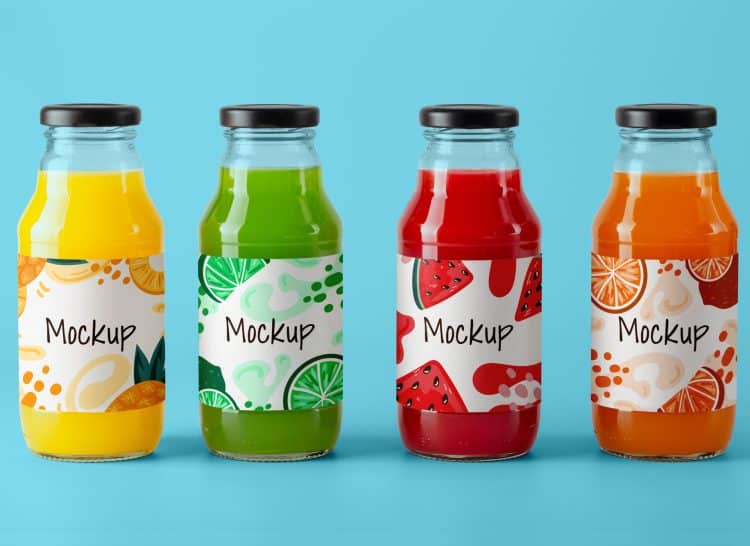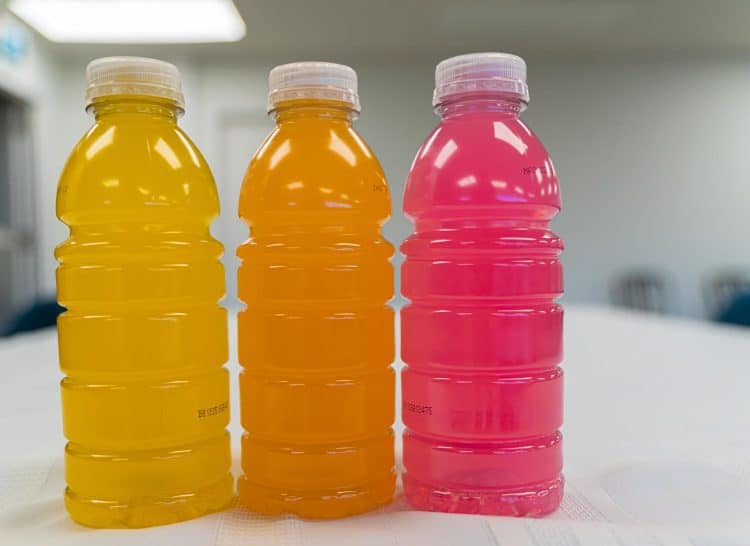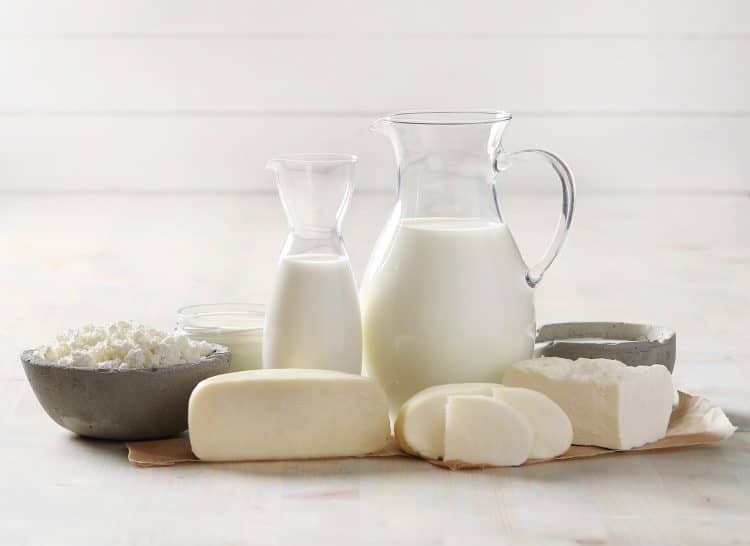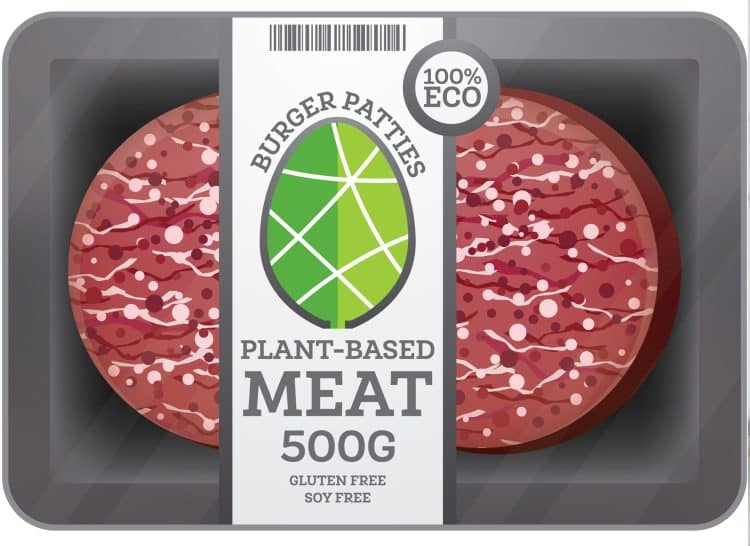As a veteran personal trainer with a special interest in nutrition, I know that eating healthy is not always easy. There is so much contradictory diet information around that it’s easy to become confused about what you should and shouldn’t eat.
Things weren’t always this complicated. As a kid growing up in the 1970s and ’80s, we had much less access to processed and junk food. In addition, manufacturers didn’t use such heavy-handed sales and marketing strategies to make us buy their wares.
Grocery stores mostly sold fresh produce, and eating healthy meant eating normally. What we often call health foods today were just regular foods 30 years ago. Vegetables, fruits, whole grains, dairy, meat, fish, eggs – these were our dietary staples. Needless to say, all these unprocessed foods are, by default, great for your health.
It’s no coincidence that people were slimmer in the 1970s and 80s than today (1).
Nowadays, it can be much harder to eat healthy. That’s not because good food is unavailable. Rather, food manufacturers often use misleading language to convince us to buy their products. It’s like they’re trying to convince us that their foods are better than those made by Mother Nature.
Terms like natural, low-fat, sugar-free, gluten-free, low-carb, etc., have an aura of healthiness about them. However, these terms are unregulated and often misleading. For example, being labeled as low-fat is no guarantee that a food is healthy.
To that end, here are nine foods that sound healthy but, in reality, are probably best avoided.
Well-Known Foods that Sound Healthy but Aren’t
While there are very few foods you need to avoid entirely, some are best consumed in moderation. This is especially true for products that are promoted as healthy but aren’t.
That’s because of something called the “health halo.” I’ve worked with hundreds of nutrition clients, and the health halo is a common barrier to successful weight loss.
The health halo describes how people often overeat foods they believe to be healthy and end up consuming more calories than they would have otherwise. For example, you might eat three fat-free cookies instead of one. Or, you might have a larger serving of low-fat ice cream than the regular kind.
Needless to say, the health halo can completely derail your weight loss efforts. In addition, many of these so-called health foods are highly processed and, by default, not healthy at all.
Here are nine foods that are not as healthy as they sound. That doesn’t mean you should never eat them. However, in most cases, they should make up a relatively small part of your diet.
1. Flavored Yogurt
Yogurt is one of the best bodybuilding foods around. It’s naturally high in protein, contains gut-friendly probiotic bacteria, and provides calcium for healthy bones. However, there is a massive difference between something like natural Greek yogurt and most flavored varieties.
Flavored yogurts are often labeled as low-fat, but invariably, they’re also very high in sugar. For example, a standard 150-gram pot of a well-known yogurt contains 15 grams of sugar or about 24% of your recommended daily sugar intake (2). Some contain artificial colors and flavors, which may also be unhealthy.
High sugar consumption is linked to numerous health issues, including type II diabetes, fatty liver disease, heart disease, and obesity (3). Plain Greek yogurt is naturally low in sugar. But if you find it a little boring, you can jazz it up with some fresh berries or a little natural honey.
2. Breakfast Cereals
Breakfast is often described as the most important meal of the day. A good breakfast should provide you with the energy and nutrients you need to function and feel your best. However, most breakfast cereals are nothing but highly processed wheat, corn, or rice combined with massive amounts of sugar.
Unrefined grains such as brown rice, whole wheat, and unprocessed oats are loaded with fiber and slow-releasing carbs. As such, they are usually thought of as healthy. However, the processed grains used to make breakfast cereals are stripped of their fiber and nutrients, turning them into a source of empty calories.
Add a hefty serving of sugar, and you’re basically eating candy for breakfast.
Most breakfast cereals are promoted as healthy because they’re fortified with vitamins and minerals and are low in fat. However, the high sugar content means that they actually offer no health benefits, and promote weight gain.
3. Diet Soda
If you want to burn fat and lose weight, you must consume fewer calories and exercise more to create a calorie deficit. One way to do this is to replace high-calorie foods with lower-calorie alternatives. And this is where diet soda comes in.
A typical 330ml can of regular soda contains about 150 calories and a whopping 40 grams of sugar. In comparison, most diet sodas are entirely calorie and sugar-free. Therefore, switching from regular to diet soda makes sense.
However, despite being significantly lower in calories, diet soda is far from healthy. It’s basically water saturated with chemicals, many of which are health risks. Diet soda can affect your appetite and increase your hunger for high-sugar foods (4). So, indirectly, you could end up consuming more calories despite your sugar-free soda.
In addition, while the USFDA classes artificial sweeteners as GRAS (generally recommended as safe), some studies indicate that there are dangers to consuming them (5). This includes an increased risk of cardiovascular disease, dementia, and some cancers.
4. Protein Bars
As most exercisers know, protein is crucial for muscle recovery and growth. Consuming too little protein will undermine your gains. However, some sources of protein are better than others.
Protein bars are increasingly popular with exercisers and non-exercisers alike. People often eat them in place of candy bars. However, these bars are not automatically healthy, even if they do contain valuable protein.
Reasons for this include:
- High sugar content
- Artificial additives
- Contain sugar alcohols
- High trans-fat content
- Low-quality protein
- High in calories
Switching from candy to protein bars will not automatically make your diet healthier. Protein bars are highly refined and, as such, should be consumed in moderation. However, because of the health halo, many people think they can eat a couple of bars a day. Needless to say, there are healthier, more nutritious sources of protein.
Related: Our List Of 40 Great Protein-Packed Foods
5. Granola and Granola Bars
Granola is often promoted as healthy and nutritious. After all, it’s made from oats and fruit, and these ingredients are good for you, right?
While granola and granola bars do contain some useful nutrients, any benefits are outweighed by the high sugar content. As such, all forms of granola are very high in calories. For example, a typical granola bar with dark chocolate chips contains 200 calories and 12 grams of sugar (6). That’s about 24% of your recommended sugar intake for the day.
I enjoy the occasional granola bar. They’re the ideal trail food when I’m out hiking. However, I’m under no illusion about the healthfulness of most granola products; they’re far too sugar-laden to be considered healthy.
6. Store-Bought Fruit Juices and Smoothies
Fruit is almost universally thought of as healthy. After all, it’s a great source of vitamins and fiber, relatively low in calories, and naturally sweet. While fruit does contain sugar, it’s in the form of fructose, which doesn’t have much of an impact on your blood glucose. However, good soon becomes bad when fruit is processed by the food industry.
Most store-bought fruit juice goes through numerous stages to give it a longer shelf life.
These stages include:
- Selection and preparation of raw material
- Juice extraction
- Concentration and freezing
- Reheating
- Clarification and filtration
- Concentration and deoxidation
- Ingredient adjustments
- Pasteurization
- Packaging/bottling
While these processes will help your juice stay fresher for longer, they also destroy most of the vitamins and fiber. It also increases the sugar content. As such, a glass of processed orange juice can contain as much sugar as soda.
Store-bought smoothies are no better and often go through similar processing. However, they may contain added sugar, further increasing their calorie content.
Bottom line: unless you make them yourself, there is no guarantee that fruit juice and smoothies are healthy. In many instances, they contain as much or even more sugar than soda despite being made from fruit.
7. Sports Drinks
It’s not unreasonable to think that sports drinks are healthy, right? After all, they’re marketed at exercisers, athletes, and other health-conscious individuals. Consequently, many people consume them because they believe they’re a healthy alternative to soda.
Sadly, this is not the case.
Sports drinks contain massive amounts of sugar. In fact, one well-known brand contains about 35 grams of sugar per serving (7). While such a sugary hit may enhance your exercise performance, it won’t do much for your health if you aren’t training hard and often.
Additionally, sports drinks are high in calories, containing at least as many as soda. As such, they can cause weight gain or impede weight loss. Many also contain caffeine, which can lead to a host of unwanted side effects.
Studies suggest that exercisers who consume a lot of sports drinks are more prone to tooth decay and other oral health issues (8). This occurs in elite athletes, as well as more recreational fitness enthusiasts.
Sports drinks are unnecessary for most exercisers and could stop you from losing weight. They’re certainly no healthier than soda, despite being marketed as such.
8. Many Low-Fat and Fat-Free Products
There are low-fat and fat-free versions of many popular foods. However, just because a food is low in fat does not automatically make it healthy. That’s because food manufacturers often replace fat with additional sugar (9). This does nothing for the caloric density of the food and actually makes it less healthful.
Examples of this practice include:
- Reduced-fat peanut butter
- Low-fat cookies
- Fat-free ice cream
- Low-fat potato chips
In most cases, the full-fat version is more filling than the low/no-fat variety, so you won’t eat as much. In addition, the low-fat version is more likely to cause a spike in blood glucose, which creates the ideal internal environment for fat storage and puts the brakes on fat burning.
Exceptions to this phenomenon include low-fat dairy and meat, where the fat is simply removed and not replaced with anything else.
9. Some Plant-Based Meat Products
Plant-based diets have become increasingly popular over the last few years. Many believe eating less meat, fish, eggs, etc., is healthful and can enhance weight loss. This is true in many cases, and any diet that promotes vegetables, fruits, whole grains, etc., should be good for you.
However, replacing animal products with plant-based meat alternatives is not always healthy. Many commercial plant-based meat replacements are heavily processed and contain lots of sugar, salt, and other unnatural ingredients. Some are low in fat and fiber, making them less filling.
While there Is nothing wrong with eating less or no animal products, it’s important to realize that vegan and vegetarian foods are not automatically healthy. A meatless burger, for example, is no better for you than one made from beef, even if it is ethically more appealing.
Closing Thoughts
I don’t know who first said, “You are what you eat,” but they were definitely onto something. That’s because every item of food you consume affects you at a molecular level, and much of it becomes part of you.
As such, what you eat has a massive impact on your appearance, performance, mood, and long-term health.
Unfortunately, much of the food industry doesn’t care much about your well-being. Instead, it’s predominately interested in your money. Consequently, food manufacturers use whatever means necessary to get you to buy their products. From bombarding you with adverts to using purposely misleading terms like low-fat, low-sugar, plant-based, and gluten-free.
How do you avoid these traps and pitfalls?
Always choose the most natural food you can. Unprocessed vegetables, fruits, grains, etc., will almost always be better for you than any processed food, even if it’s promoted as healthy.
I’m not saying you should never eat the foods on this list. However, I believe you should only consume them in small amounts. You should also be mindful that some foods are not as healthy as you’re being led to believe.
Finally, remember that you can have a great diet without buying special foods. In fact, whole foods, such as vegetables, fruits, nuts, seeds, spices, beans, lean meat, and fish, are the ultimate prescription for lasting energy and long-term health.
References:
- Harvard Medical School: Why People Become Overweight
- Dannon: Nutritional Breakdown for Fruit on the Bottom Strawberry
- Paglia L. The sweet danger of added sugars. Eur J Paediatr Dent. 2019 Jun;20(2):89. doi: 10.23804/ejpd.2019.20.02.01. PMID: 31246081.
- Farr OM. Acute diet soda consumption alters brain responses to food cues in humans: A randomized, controlled, cross-over pilot study. Nutr Health. 2021 Sep;27(3):295-299. doi: 10.1177/0260106021993753. Epub 2021 Feb 15. PMID: 33588630.
- Sharma A, Amarnath S, Thulasimani M, Ramaswamy S. Artificial sweeteners as a sugar substitute: Are they really safe? Indian J Pharmacol. 2016 May-Jun;48(3):237-40. doi: 10.4103/0253-7613.182888. PMID: 27298490; PMCID: PMC4899993.
- Nature Valley: Nutritional Breakdown for Oats ‘n Dark Chocolate Crunchy Granola Bars
- Pepsico: Nutritional Breakdown for Gatorade Fruit Punch
- Khan K, Qadir A, Trakman G, Aziz T, Khattak MI, Nabi G, Alharbi M, Alshammari A, Shahzad M. Sports and Energy Drink Consumption, Oral Health Problems and Performance Impact among Elite Athletes. Nutrients. 2022 Nov 30;14(23):5089. doi: 0.3390/nu14235089. PMID: 36501119; PMCID: PMC9738880.
- Nguyen PK, Lin S, Heidenreich P. A systematic comparison of sugar content in low-fat vs regular versions of food. Nutr Diabetes. 2016 Jan 25;6(1):e193. doi: 10.1038/nutd.2015.43. PMID: 26807511; PMCID: PMC4742721.
Article Updates Timeline:
Our editorial team experts constantly update the articles with new information & research, ensuring you always have access to the latest and most reliable information.
January 8, 2024
Written By
Patrick Dale, PT, ex-Marine
Reviewed By
Editorial Team
Fact Checked By
Dr. Malik
Tip: If you're signed in to Google, tap Follow.


